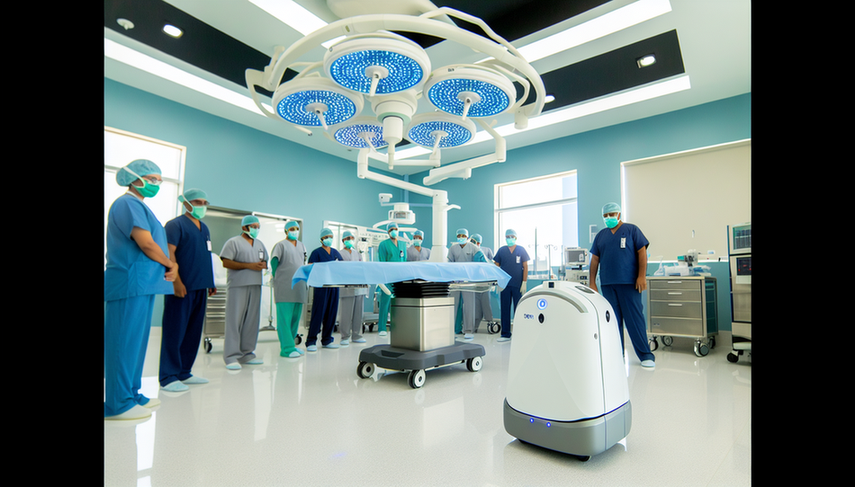Disinfection Robots in Surgical Environments: Reducing Infections with Healthcare Technologies

The **reduction of infections** in **surgical environments** is a constant challenge in medical practice. **Healthcare technologies** have evolved significantly, and **disinfection robots** are emerging as a promising solution to minimize the risk of nosocomial infections. These devices, equipped with advanced technologies such as ultraviolet (UV-C) light, offer an effective and efficient alternative to traditional cleaning methods.
Advances in Robotic Disinfection
**Disinfection robots** have been designed to perform tasks that are dangerous, tedious, or difficult for humans. In the context of hospital disinfection, these robots utilize UV-C light to eliminate pathogens from inanimate surfaces, which is crucial in preventing infections in **surgical environments**. A recent study demonstrated that a state-of-the-art robotic system, such as the R2S, is more effective than manual sanitization in reducing bacterial load on high-contact surfaces, including multi-drug resistant pathogens like S. aureus and K. pneumoniae [1].
Furthermore, the incorporation of **disinfection robots** in critical areas such as hyperbaric chambers has shown a significant reduction in bacterial load, surpassing standard cleaning methods [2]. These advancements underscore the importance of integrating robotic technologies into hospital cleaning routines to enhance patient safety.
Conclusions
The implementation of **disinfection robots** in **surgical environments** represents a significant advancement in the **reduction of nosocomial infections**. The ability of these devices to provide more thorough and consistent disinfection than traditional manual methods is a step forward in improving patient safety. As technology continues to advance, it is essential for healthcare professionals to consider the adoption of these **healthcare technologies** to optimize clinical outcomes and reduce the incidence of healthcare-associated infections.
References
- [1] Effect of a UV-C Automatic Last-Generation Mobile Robotic System on Multi-Drug Resistant Pathogens
- [2] Reduction of bacterial load with the addition of ultraviolet-C disinfection inside the hyperbaric chamber
Created 24/1/2025
